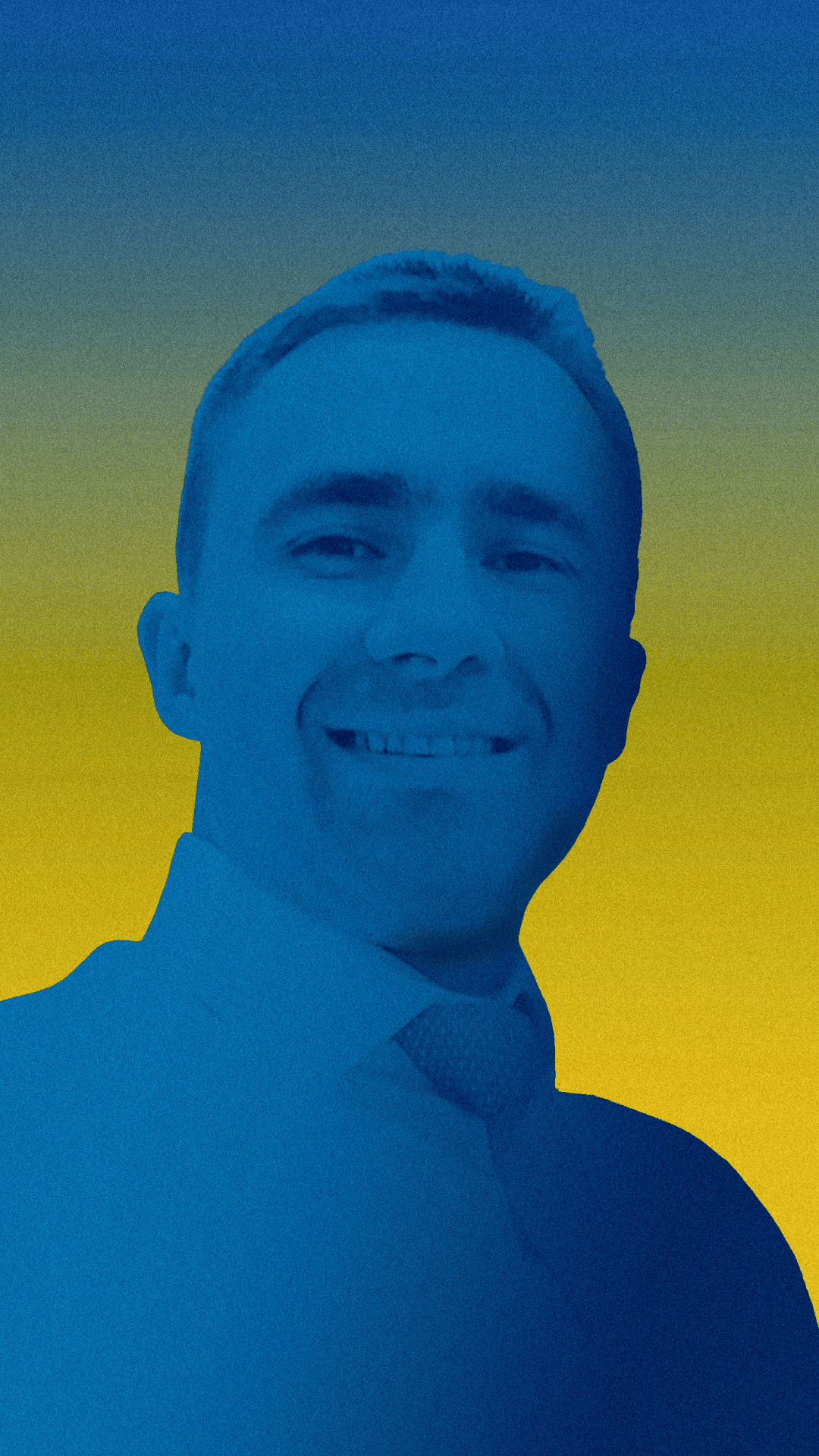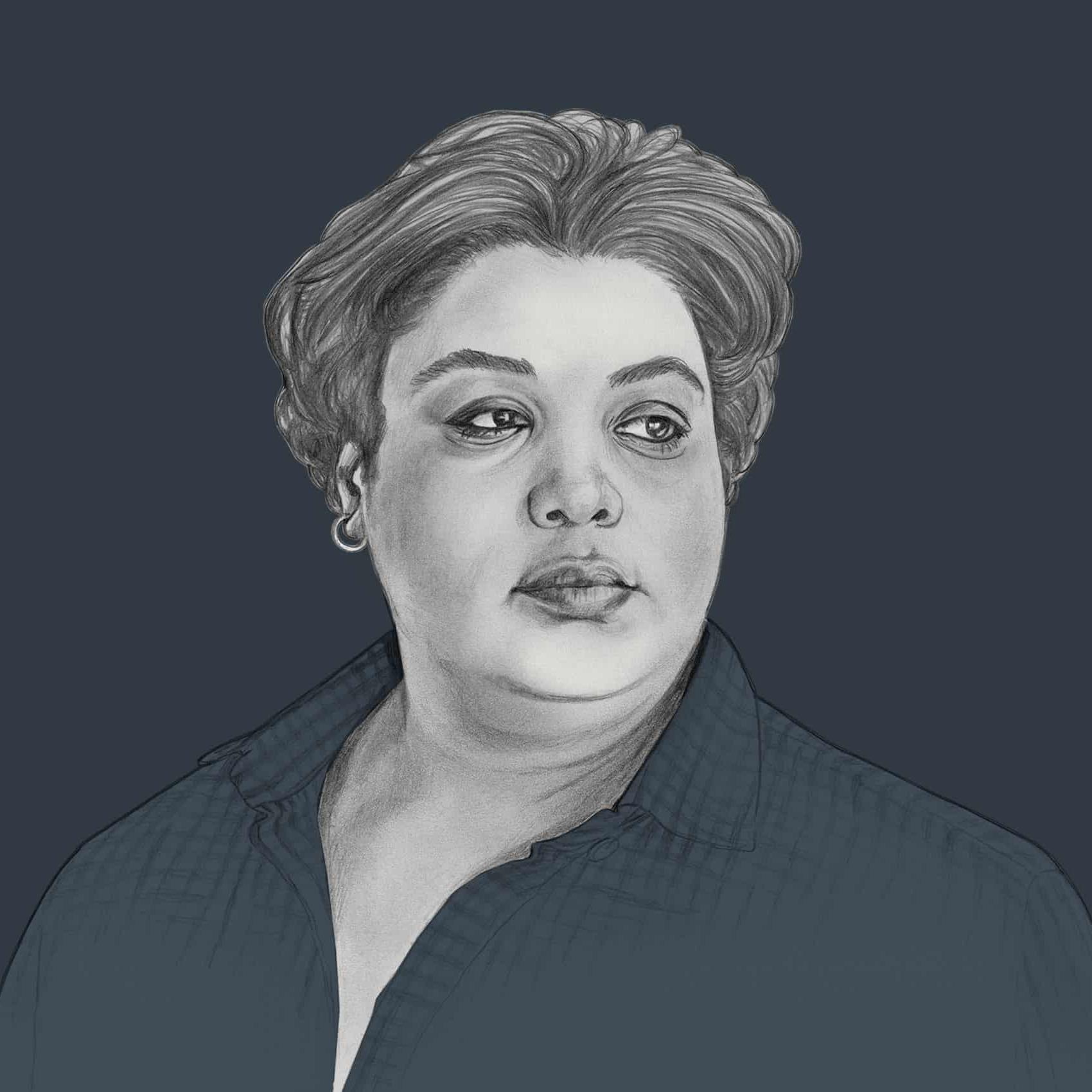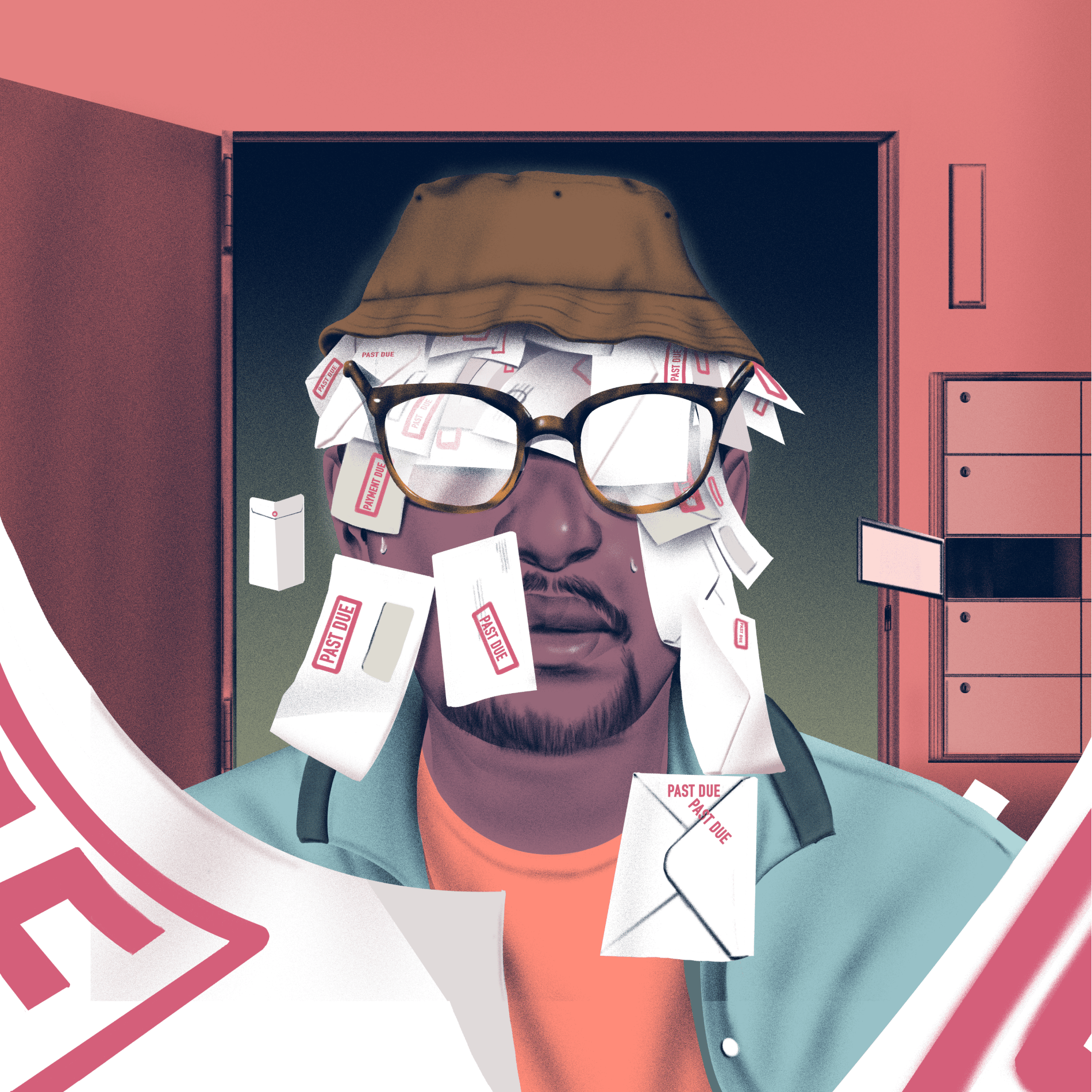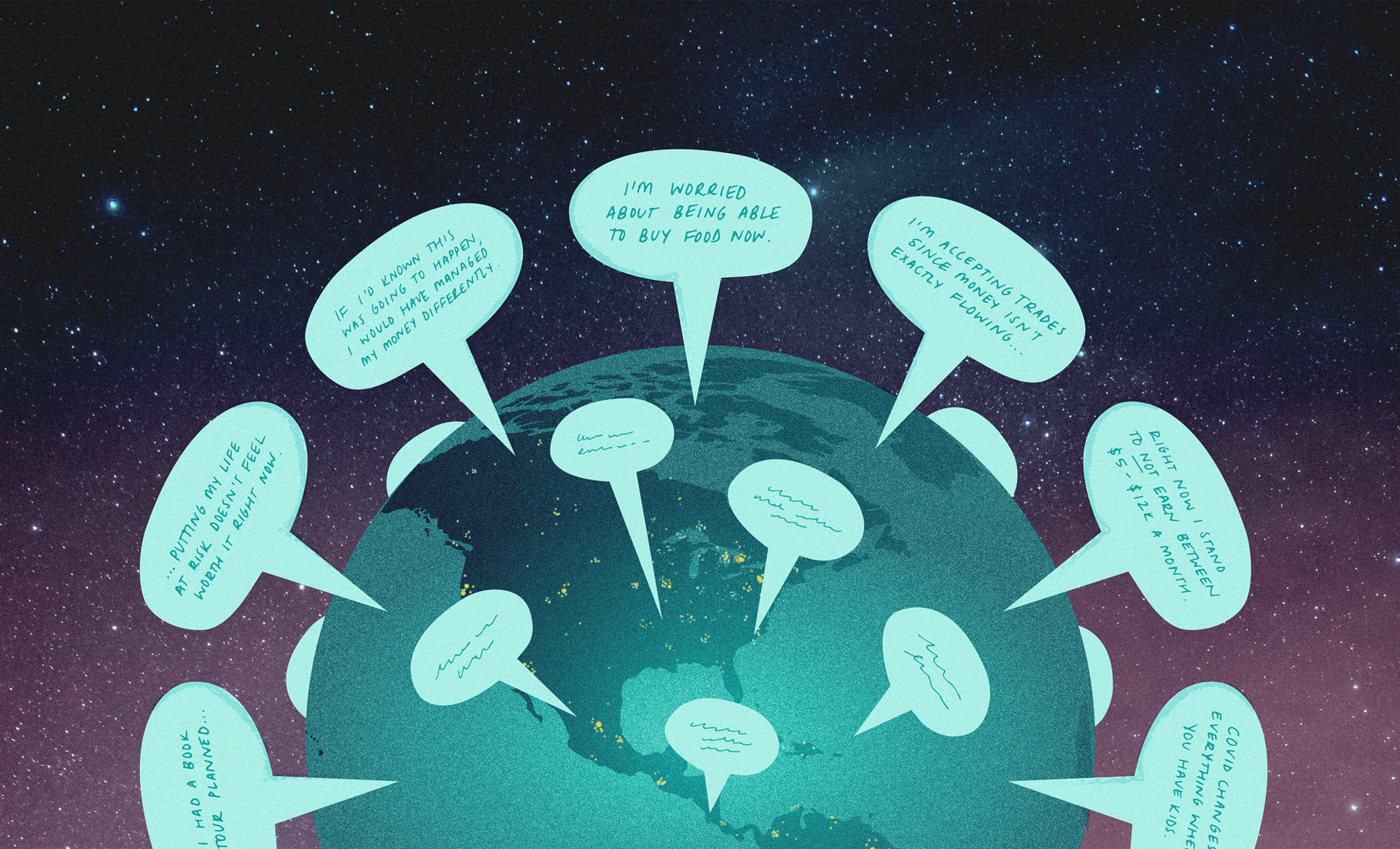
Money Diaries
In February, He Was a Ukrainian Corporate Dealmaker. In March, He Became a Resistance Fighter
Oleksandr Vodoviz, 38, is an executive for Metinvest, a massive international steel-and-mining company headquartered in Ukraine. He told his story to J.R. Sullivan.
Wealthsimple makes powerful financial tools to help you grow and manage your money. Learn more
I had a lot of projects going on when the war broke out. I’m the head of mergers and acquisitions for Metinvest, Ukraine’s biggest private company. I buy and sell companies, steel plants especially. We were building a new steel-rolling facility in Italy for $1 billion USD.
I was sleeping when one of the first drones was shot down. It was February 25, at about four in the morning. I live in a multi-story building near the center of Kyiv, and the Ukrainian military’s anti-aircraft defense hit a Russian drone right near my flat. The explosion broke the windows. And yet I still didn’t believe that the war had started. Nobody did. I told myself that the blast was from a gas explosion. Or that it had to do with the electricity or the heating. Then I read the news, and I knew. My family started to think about what we should do next. I knew my wife and children had to get out. But the airports had been bombed.
In the morning, I decided to go to the office; I needed to. The city was madness. People were fleeing. Thousands of cars clogged the roads. There was no way to get gas, no way to take public transportation. I had to walk to my office, which took half an hour. Metinvest accounts for about 5% of Ukraine’s GDP and employs about 67,000 people globally. About a thousand work in the Kyiv office. But when I arrived that morning, there were only 10 or 15 people there—all top management. Everyone else was escaping. What do we do next? we asked one another. How do we save people?

Sign up for our weekly non-boring newsletter about money, markets, and more.
By providing your email, you are consenting to receive communications from Wealthsimple Media Inc. Visit our Privacy Policy for more info, or contact us at privacy@wealthsimple.com or 80 Spadina Ave., Toronto, ON.
We started making calls. Two of our biggest iron-and-steel plants are in Mariupol. Twelve thousand people worked at one facility, 10,000 at the other. We employed 40,000 total in the city. We talked to management there and decided to suspend operations. People were dying. We tried to send buses to Mariupol through humanitarian corridors, but the Russians shot at them, so they had to stop. Both plants were later bombed. Around 200 people in my company have died since the invasion began. There’s no one in Ukraine who hasn’t lost relatives or friends or someone they knew.
It’s a big mistake for Western leaders to think that if they keep calm and restore order, Putin will go away.
MY WIFE AND children made it to Poland two days after the war started. They waited in a car for 36 hours at the border. I escaped from Kyiv on the fourth day of bombing. I’m originally from Lviv, which is about 470 kilometers west of Kyiv, and I still have a house there, so that’s where I went, by choice. I wanted to help the defense; the state hadn’t called me.
The drive was scary—a lot of military personnel in the streets. Tanks were shooting near me. They were Ukrainian tanks. But I’m not a military guy. I didn’t know who the tanks belonged to at first. Normally, the drive from Kyiv to Lviv takes about four or five hours. But, with all the traffic and checkpoints and military action, it took me 21. I’ve been here ever since.
I still work for Metinvest, but I’m also now serving in what’s called Territory Defense, which is composed of militia battalions organized by local authorities. I help man a checkpoint near the Lviv airport. We look over documents and inspect the cars of whoever tries to come in. The state gave me nothing; I had to equip myself with both clothes and a weapon. Fortunately, I owned some hunting rifles. I kept a gun and gave away the rest to other fighters.
It’s not so scary in Lviv compared to Kyiv; it’s secure enough that I’m able to have conversations like this with you over WeChat and iMessage. But the Russians did bomb an aircraft plant nearby, and there has been shelling. Fortunately, the airport remains functional.
Recommended for you

Cult Animator Carson Mell Decided Making Stuff Was More Important than College
Money Diaries

Roxane Gay on Financial Independence: 'The Most Important Thing a Woman Can Do for Herself'
Money Diaries

Joel Kim Booster Was in Massive Student Debt Until Two Years Ago
Money Diaries

It’ll Work Itself Out (It Actually Won’t)
Money Diaries
There are six guys on my shift. We run the checkpoint for a day, then have a day or two off, then we come back. On my off days, I work on a laptop in my house. Everyone has accepted that the war will not end in one or two more weeks; it’ll last months. So we’re trying to conduct business and go about our lives, and we’ve gotten used to war in a way. Some of Metinvest’s Ukrainian production plants have resumed operations. We have plants all over the world—Great Britain, Italy, Bulgaria, Poland—so those facilities are operational, too. I’m involved in logistics now—like how to ship coal from the U.S., how to deliver products to our clients.
My company continues to pay everybody, no matter their military service. We might see decreases in salaries as the war drags on, but right now, everybody receives 100% of their paycheck. Our company is controlled by Rinat Akhmetov, Ukraine’s richest man. He understands that people are in a bad situation, that they’re just trying to survive.
Ukraine’s GDP has fallen by nearly 50%, owing to the war. I have no idea how long our economic recovery will take. It depends on who will give us money. Will it be the U.S.? Will it be the EU? Nobody knows. But we’ll need help. Three hundred and fifty bridges have been destroyed. Those will cost hundreds of millions of dollars to repair, if not more. And that’s just bridges! The total infrastructure damage is estimated to be $62 billion USD.
WE ARE OPTIMISTIC, I would say. Russians can do nothing on the ground. We see that we can beat them. We’ve already won back places around Kyiv. But we know that we will ultimately not win the war without the West’s help. Russia is strong in the air, and they’re leveling cities. There is no Mariupol. Almost 500,000 people lived there. There is no city now. Same goes for Kharkiv. More than a million people lived there. No city. Doom. Ditto Chernihiv.
But the Russians cannot take these cities, only bomb them. That’s why we’re asking for one percent of NATO’s tanks and aircraft. If Western nations will not close the sky, give us the weapons. We will do the job ourselves. We will finish this war. But France, Germany, and other NATO nations are instead trying to compromise with Russia, because of the gas and oil, because their economies intertwine. That’s why there are a lot of holes in the sanctions. We’re afraid the West is going to sell us out. And we’re afraid that the longer the war goes on, the weaker we’ll become, militarily and economically.
North Americans need to put more pressure on their governments. The West can give us heavy weapons to end this war. We know that everybody is afraid of Putin—that he’ll push the nuclear button or something. But it’s a big mistake for Western leaders to think that if they keep calm and restore order, Putin will go away. No. This was our mistake. If he has a button, he will push it sooner or later.
Vodoviz spoke to the author, via WeChat, on March 25 from his home in Lviv, and answered follow-up questions over iMessage in April. Their conversations were edited for clarity and concision.
Jared Sullivan is an editor for Wealthsimple Magazine and author of the book "Valley So Low: One Lawyer's Fight for Justice in the Wake of America's Great Coal Catastrophe".





